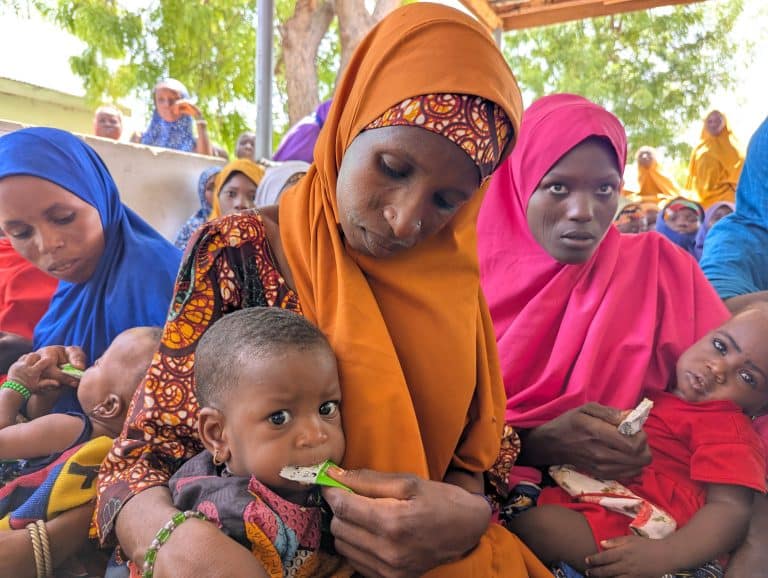ALIMA, a major player in emergency medical aid in Africa, has already issued several alerts since the beginning of the year.
We know that Africa is the continent most affected by malnutrition, with a prevalence estimated at 21%, compared to 9.9% worldwide. In the Sahel, the food insecurity situation has worsened considerably every year.
The number of people on the brink of starvation has increased almost tenfold in the past three years, and forecasts suggest that the scale of the current crisis is likely to exceed previous years due to increased insecurity and poverty in the region.
The food crisis continues to deteriorate
ALIMA, along with several other humanitarian organizations, is very concerned: West Africa is probably facing its worst hunger crisis in a decade. Recently, the situation has further deteriorated due to several factors. First, the security context: an increasing number of conflicts has given rise to nearly 400% more population displacements in the last three years (Source: United Nations 2022). There are also economic problems that have been further accentuated by the COVID-19 crisis. In addition, the consequences of climate change are aggravating an already disastrous food situation. And finally, the war in Ukraine has further complicated the problem by affecting the availability of cereals.
A need for urgent action
Without real awakening and collective mobilization, all signs point towards a disastrous food and nutritional situation for communities on the continent this year. This summer, some countries like Chad declared a state of food emergency. On the ground we see hospitals and health centers that are completely swamped, and unable to accommodate more malnourished children due to a lack of human and financial resources. We see some of our nutritional units overwhelmed, with worrying occupancy rates exceeding 100%. The lack of funding despite the growing humanitarian needs has led to the closure of a number of projects treating acute malnutrition which were essential to the poorest communities , as well as a shortage of ready-to-use therapeutic food, further compromising the quality of care.
In some areas, we find that there is a total absence of health care due to insecurity. We try to cover urgent health needs by offering free care to displaced populations in their host areas or sometimes even in insecure areas.
World hunger is completely preventable
ALIMA is an expert organization in the fight against acute malnutrition. We have made considerable efforts to improve the treatment of acute malnutrition; we identified a method helping mothers detect malnutrition in their children at the earliest stages to prevent them from suffering from more severe levels of malnutrition. This is the MUAC for Mothers method. Furthermore, we have been able to implement a simplified strategy for the treatment of malnutrition to optimize resources and help health workers. All this was made possible through rigorous scientific studies that demonstrated the effectiveness of these methods.
Since the end of 2020, ALIMA has been calling for child malnutrition to become a major priority in the international agenda. We must mobilize against this nutritional crisis to save lives and implement innovative and sustainable solutions to better fight against hunger and acute malnutrition.
© Cover photo: Benita Nnachortam/ ALIMA





